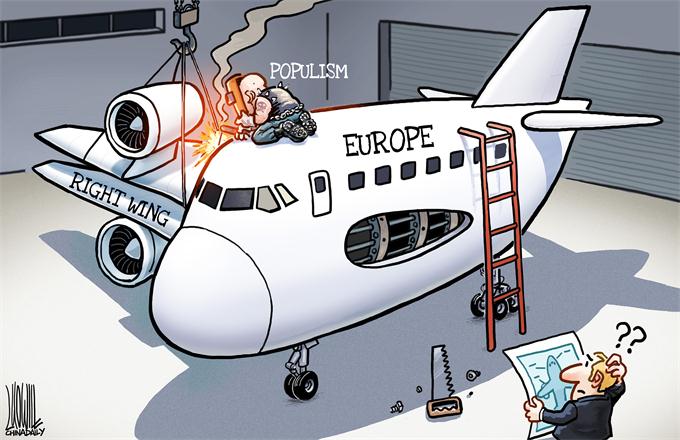Domestic dairy firms have lost credibility
The recent baby formula scandal involving Swiss dairy company Hero Group and its distributor in China has left people like me, the father of a 2-year-old girl, extremely worried. Hero's Chinese distributor could face charges for repackaging the contents after mixing them with expired milk powder. This fact has created panic among young children's parents who used to believe that at least foreign baby formula brands could be trusted.
Besides not knowing how to distinguish real foreign products from shams, many Chinese parents and grandparents find it increasingly difficult to purchase foreign-made baby formula from reliable outlets especially after Hong Kong implemented strict regulations in February prohibiting individuals from taking more than 1.8 kilograms of infant formula to the Chinese mainland. People violating the regulations are liable to be imprisoned for up to two years and fined HK$500,000.
In fact, many Chinese parents' need for uncontaminated baby milk powder has sparked a buying spree even in foreign countries, raising local people's concern and prompting governments to impose restrictions. In the United Kingdom and Australia, supermarkets have rationed infant formula in response to the rampant demand of Chinese buyers. They follow the examples set by the United States and New Zealand.
But the more difficult it is to buy uncontaminated baby formula the stronger is the impulse to get it. The melamine-tainted milk scandal that left six children dead and about 300,000 suffering from various diseases in 2008 made many Chinese parents to rely on foreign brands. But quite a few parents like me have been deceived by false claims of some baby formula brands of being foreign based only to find out later that they were established by some mainland enterprises.
But the overwhelming preference for foreign brands among Chinese parents is disproportionate considering the huge baby formula market in China. An Ogilvy & Mather report, issued in March 2010, says China has some 320 million working mothers, more than the entire population of the US, which should give a fair indication of the size of the Chinese market for baby formula. Actually, China is the world's second-largest infant formula market, with the number of annual births being about 16 million between 2003 and 2009. The country's urbanization drive and increase in people's incomes have added to the rising demand for foreign-made baby formula.
Euromonitor International says China's baby formula market will double from 2010 to 80 billion yuan ($12.91 b) in 2015, and much of this growth will be in favor of foreign brands.
According to industry expert Wang Dingmian, domestic brands held 70 percent of the market share before the 2008 milk scandal. But last year, just four major foreign brands accounted for almost half of the market share - Mead Johnson had 12.3 percent, Abbott 7.7 percent, Dumex 11.7 percent and Wyeth 11 percent - says a report by Nielsen in March. Once, I asked a supermarket employee what people buying baby formula care most about. Her answer: whether the foreign baby formula products are really imported.
After the 2008 melamine scandal, many people thought at least there wouldn't be any more baby formula scandals but they have been disappointed. Therefore, parents who can afford to pay higher prices rely on foreign products. And there is no reason to think such people are not patriotic. Why should a patriotic Chinese help fill the coffers of domestic baby formula makers that use sub-standard products and even poisonous chemicals to make more profit? Of course, some foreign brands have exploited Chinese parents' desperation and increased prices even when the customs duty and raw material costs have declined. But then that's how the market always behaves.
Unless domestic dairy companies improve the quality of their products substantially and stop using banned chemicals, and the government tightens supervision and punishes the enterprises guilty of poisoning our children, Chinese people will not believe in domestic products.
The author is a reporter with China Daily.
(China Daily 04/26/2013 page9)





















